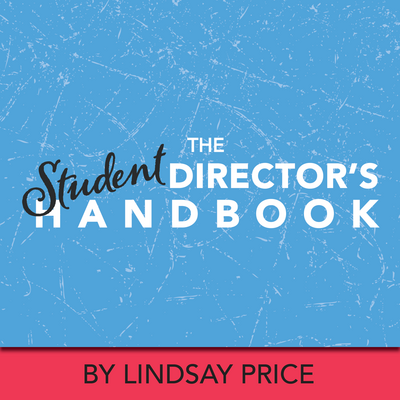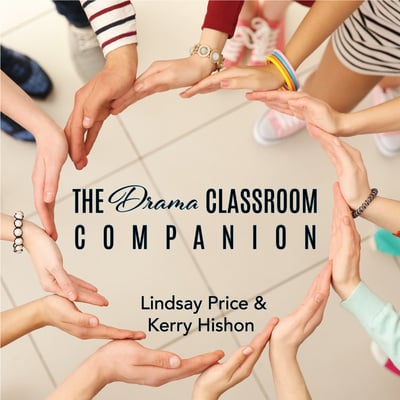Working With Co-Directors, Assistant Directors, and More
Having additional personnel working on a school production can be incredibly helpful. Co-director, associate director, assistant director, director’s assistant, artistic associate — they’re all different titles with different levels of involvement, leadership, and decision-making capabilities, and when used effectively, can really help to ease your workload. On a musical, they may double as the choreographer or musical director, or they may be in a separate position. The key to employing someone in this type of role is clear communication; otherwise, having an additional staff member can cause more issues rather than solve them. Here are some discussion points to consider when you’re working with an additional director.
PURPOSE: To start, establish the purpose and responsibilities of the additional team member. Are you looking to have another adult around to supervise and lead rehearsals (especially when you’re working with large groups of students? Are you looking for someone to cover rehearsals while you’re away? Do you want to double up on rehearsal plans and have a small group of students working in one room with one director while you work with others in a different room? Are you looking to mentor a new director to take over the responsibility of running the school show? Conversely, do you expect them to take the lead on directing the production while you act in a supervisory role? Will you expect them to take on any administrative or producing tasks, such as budgeting, scheduling, or discipline, or are their contributions strictly artistic in nature?
EXPECTATIONS: You also need to know what the additional team member’s desires and expectations are for their involvement in the show. Are they a new director wanting to gain experience, grow their skills, and build their resume? Are they an experienced teacher or director looking to move into a new role or job? Are they hoping to direct scenes for the show or learn by observing and shadowing you? Do they want to take over parts of being a “do it all director” to ease your load, such as create a lighting plan or design costumes or sets? Will they be responsible for a specific task during the show run, such as operating lights or sound, being backstage as an ASM, or calling the show? What do they hope to get out of the process? Do their expectations line up with yours?
TITLE: What will their official title be? There are some perceived discrepancies between the various titles. Co-director implies that there are two directors of equal power, with equal decision-making privileges. The difference between associate and assistant director is less clear-cut — which is considered a higher-level role, especially if you have both an associate and an assistant. Will you also have a student assistant director, and if so, who does what during rehearsals and showtime? A director’s assistant is a non-artistic role. This person’s job is to help the director with tasks such as photocopying, running errands, liaising with others, and additional tasks as required.
ARTISTIC INPUT: How much artistic input will they be allowed to give? Do they get to give ideas about the overall concept or aesthetic of the production? Will they direct full scenes or sequences, or help with aspects such as character development, line memorization, or technical acting elements such as vocal projection and diction? Are they allowed to give notes? Can they veto your artistic choices, or can you veto theirs? Who gets the ultimate say in artistic decisions?
TIME COMMITMENT and COMPENSATION: What is their time commitment? Are they full-time or part-time? Are they going to come to all rehearsals or just the ones on Mondays and Wednesdays? Or are they not available on Thursdays after school? Will this affect their title designation? On top of that, do you have an available budget to pay for this person’s time, or is this role a volunteer position? Be sure to make this aspect of the role clear to the candidate, because it will affect whether or not they are willing to commit to the position and how much effort they may expend on the show.
VIBE CHECK: Have you worked with this person before, and if so, in what capacity? Do you get along with them? What assets do they possess that will help the production? How do they react in stressful situations? Do they know and/or get along with any additional team members you have on the show? Do they know the students? If they aren’t a teacher at your school, have they worked with students before? Do you need to fill out any paperwork before they start working on your show? Do they need to submit any accreditation or complete a background check prior to working with your students? Will they benefit the production process or create more work?
Related Articles
The Student Director's Handbook
by Lindsay Price
Help students take their show from first audition to opening night with The Student Director’s Handbook. This easy-to-use ebook is full of guidelines, tips and templates designed to help students create a vision, circumvent problems and organize rehearsals on their way to a successful production.
The Rehearsal Companion
by Kerry Hishon
You’ve chosen the play, paid the royalties, done the script analysis, held your auditions, and cast the show. Tomorrow is the first rehearsal. Are you ready? Really ready? The Rehearsal Companion can help!
The Drama Classroom Companion
by Lindsay Price & Kerry Hishon
The Drama Classroom Companion is filled with articles and exercises to build the skills needed for theatrical performance as well as real world skills like creative thinking, critical thinking, collaboration, and communication.






